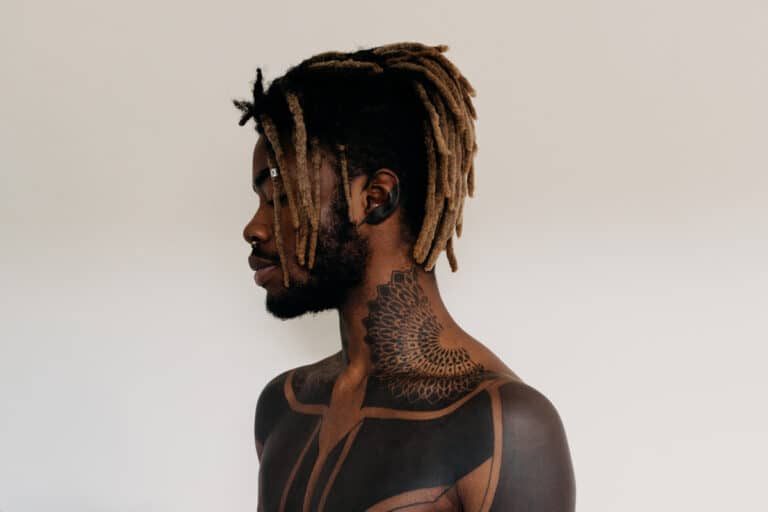The history and meaning of Polynesian tattoos

Are you interested in the history of Polynesian tattoos? What do they mean? Here’s everything you need to know.
The origins and history of Polynesian tattoos
Historians have revealed that Polynesian tattoos have a long history and tradition that started back in the days of the Samoan, Maori and Polynesian tribes and cultures. The word tattoo came from the words ‘tatatau’, ‘tā moko’, ‘tatau’ and ‘pe’a’, which roots came from the languages of the tribal cultures of Marquesan, Tahitian and Hawaiian.
The culture of tattooing in the South Pacific can be traced as far back as 1500 BC. In this region, particularly in ancient society, almost everyone was tattooed, women included. But much more than being an ornament, tattoos in the Polynesian and Tahitian culture used to indicate one’s rank in the society or his genealogy.
Tattoos were also a sign of someone’s ability to endure pain, show strength or wealth. When the Europeans arrived, tattooing and overall culture started to change. For example, Captain Cook along with others returned to their origins with tales of savage cultures and rituals, such as tattooing, from Polynesia.
However, the art was nearly banished when the missionaries came because they considered tattoos as sinful skin gratifications. For this reason, they banned them. But then, the art went through a renaissance since 1981, when it was well documented that it gained recognition as an art form.
The tools and techniques behind Polynesian tattoos
What are the tools and techniques of the trade? Luckily, they have changed a little over the past years. Tattooing by hand is the traditional technique of applying a tattoo. It has remained so for more than 2,000 years. The same goes for the techniques and tools used to tattoo. An apprentice or a young artist spent hours tapping a design into a bark cloth or sand using a special comb called ‘au’.
Samoan tattoo artists created their tattoo tool from the sharpened teeth of boars. They’re fastened using a part of a turtle shell before being attached to a wooden handle. Traditionally, the art skill was passed down from one generation to the next. Tattoo artists in Hawaii have also learned what they know working as an apprentice.
Symbols and meanings
Polynesian tattoos are heavy in symbols and meanings according to scholars. But generally, they’re adapted from the four elements—Earth, Water, Fire and Wind. There is also a specific ceremony for each symbol, which is related to an element.
Some symbols are specific to a role or a certain family. For one, warrior tattoos would often include symbols that were not related to those tattooed on fishermen. But in the modern world, Tahitian tattoos indicate specific interests and ancestors, or they can take on a more personal meaning. Some examples of symbols are also those that would represent travel, land and stability. A few of them include Tiki for protection or a turtle for fertility.
Design and styling
In terms of style and designs, Polynesian tattoos are also well thought of and planned. For example, each body part is associated with a certain theme. Tattoos on the head are often associated with intuition, wisdom, knowledge, spirituality and other related themes, because this part of the body is, as they believe, Rangi’s contact point. On the other hand, a tattoo placed on the higher trunk, which sits above the navel to the chest, is often related to a theme. Some of them are reconciliation, honour, sincerity and generosity.
Tattoos in the lower trunk area are going from the thigh to the navel. This body part, according to Polynesian beliefs, relates to themes such as independence, procreation, courage, and energy. In addition, the thighs are related to marriage and strength. Designs and styles placed on the shoulders or upper arms are related to bravery and strength. More often than not, they are tattooed on chiefs or warriors.
The art of tattooing in the South Pacific tribal groups has many years of history and traditions, but little has changed in terms of the tools and techniques of the trade and the related meanings for many of the symbols used. In other words, if you’re looking to get a Polynesian tattoo any time soon, make sure you know what meaning it will bear.




